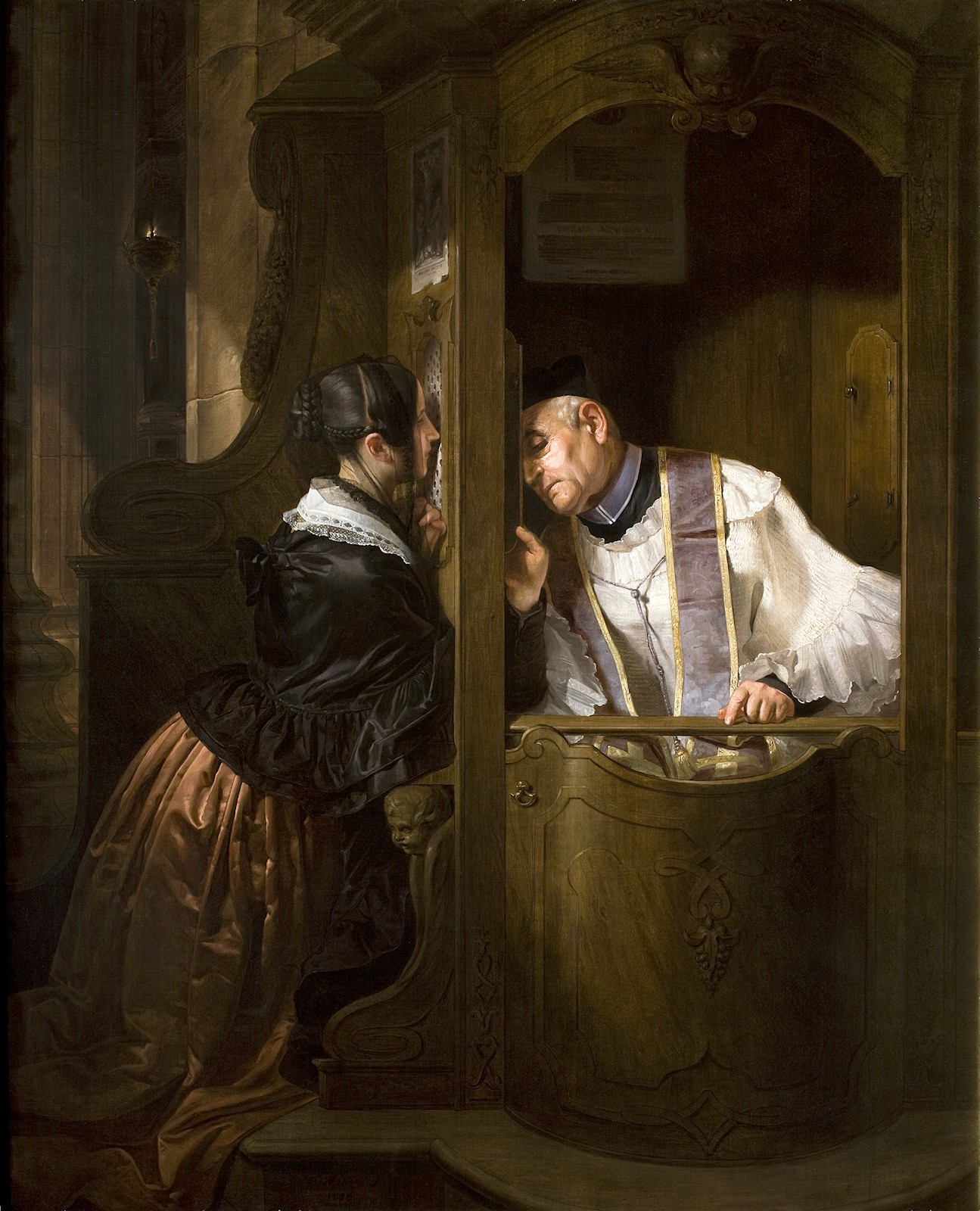We Gain No Merits and No Indulgences in the State of Mortal Sin
Our prayers, fasting, and almsgiving do not profit our souls if we are in the state of mortal sin. We can gain merit and atone for sin only when we are in the state of grace.
This truth of the faith is taught by Our Lord Himself at the Last Supper when He said: “Abide in Me, and I in you. As the branch cannot bear fruit of itself, unless it abide in the vine, so neither can you, unless you abide in Me. I am the vine: you the branches: he that abideth in Me, and I in him, the same beareth much fruit: for without Me you can do nothing” (John 15:4-5).
Obviously, men can ‘do things’ when they are pagans or in a state of mortal sin. Rather, Our Lord is effectively saying one can do nothing good, that is, nothing good in the light of eternity if His sanctifying grace is not in one’s soul. Man is incapable of doing good for the salvation of his own soul and that of others – good that will last for all eternity – without the operation of the Holy Ghost. And this is the only good that really matters. Our Lord does not mince words nor waste His words. He is only concerned with that which brings us into union with His Father, and therefore teaches we must live and abide in the state of grace.
Fasting – even the rigorous fasting widely practiced by our ancestors and encouraged by Our Lady of Fatima – is not useful if we continue to live in mortal sin. Likewise, we cannot gain any indulgences for ourselves or for others (e.g., the Poor Souls in Purgatory) while in the state of mortal sin. The two basic requirements for all indulgences – whether plenary or partial – is that the person must be in the state of grace by the completion of the indulgence, and the person must also want to gain the indulgence.
But this reality might lead some people to ask: “Why even pray in the state of mortal sin before Confession?” or “Does God even hear my prayers if I’m in the state of mortal sin?” (A similar question some have asked is: “Does God even hear the prayers of a non-Catholic?”)

God Still Hears the Prayers of Those in Mortal Sin
There is a key distinction between having our prayers heard by God and gaining merit. Fr. Darin Schmidt addressed this well in his blog when he wrote:
“Can God talk to you if you have a mortal sin on your soul?
“Yes. We distinguish between sanctifying (habitual) grace and actual graces. Now the name ‘actual’ grace might make it sound like we’re implying other graces are not ‘real’ graces, but they are named ‘actual’ because they refer to particular and passing actions, whereas sanctifying grace refers to the state of being, the habit of holiness that persists after baptism as long as we do not sin mortally. It’s the difference between doing things, performing certain actions, and being human or, with sanctifying grace, being a child of God.
“Mortal sin takes us out of the state of grace. We lose sanctifying grace and the theological virtue of divine charity, but God could still speak to us because those would be actual graces, passing actions that God can grant even to someone who is not in the state of grace. And He might grant them precisely to spur us to repentance, to Confession, and a return to sanctifying grace.”
Just as God can still speak to us, we can still speak to God even in sin. If this was not the case, God would not call – and people would not respond – to the call to convert to the Catholic Faith as adults. Moreover, making a good confession when in the state of mortal sin is impossible without grace. Inevitably, that comes about because one has prayed to God (has a receptive disposition) and God has provided the actual grace to move the soul to true contrition.
Sacramental Absolution Restores Sanctifying Grace and Merits to Our Souls
Even in the state of mortal sin, we are obliged to attend Holy Mass on Sundays and Holy Days of Obligation (though of course we may not receive Holy Communion without sacramental Confession) and we are still required to pray. Failure to do so would further increase the number of sins on our own soul. In fact, if we are struggling with sins, we are more likely to be in need of staying closer to God in prayer. If we are in the state of mortal sin, we should be more inclined to pray! Offer prayers seeking God’s mercy and pardon, and the strength to avoid such sins in the future.

As Fr. Garrigou-Lagrange teaches, the fruits of Confession are those of the virtues of humility and penance and especially those of sacramental absolution. Sacramental absolution restores sanctifying grace to our soul and any merits we have lost, since mortal sin robs a soul of the theological virtue of charity and any merits thus earned while previously in the state of grace.
However, the effects of absolution are always in proportion to the excellence of the dispositions with which the Sacrament is received. Among twenty people who go to confession, each receives a different measure of grace, for God discerns difference in each one’s acts. As a result, some may not receive back all of the merits lost. A general confession of past sins is also effective in order that we might have a greater contrition for sins that have already been forgiven and which may diminish the temporal punishments due to them. (Note: God is not obligated to return those merits lost when we fall into mortal sin, but He chooses to do so as an act of His wondrous and infinite mercy! This should mystify us because human beings rarely act thus. But God’s ways are far above our ways.)
Above all, avoid mortal sin more than death! There is nothing more evil in the world than mortal sin. There is nothing that can send a soul to hell other than mortal sin. Yet for those who have had the misfortune to fall into this, do not despair. Continue to pray the Rosary, to say other prayers that one customarily does, and to attend Mass. And make it a point to get to Confession with a Catholic priest as soon as possible.
Prayer to Prevent One Mortal Sin
O Mary, Immaculate Mother of Jesus, we beseech Thee, offer to the Eternal Father the Precious Blood of Thy Divine Son, to prevent at least one mortal sin from being committed somewhere in the world today. Amen.
O Mary, most sorrowful Mother of all Christians, pray for us.




